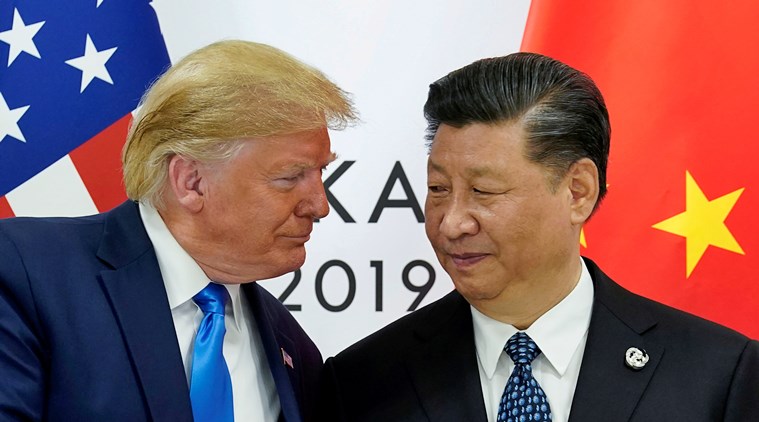US President Donald Trump’s “tit-for-tat” battle against China still continues. The latest victim of this scuffle is the Chinese messaging and payment services app, WeChat. Last Thursday, the US President signed an executive order, effectively banning WeChat in 45 days. This was the second biggest move taken by Trump last week apart from the TikTok ban.
As opposed from TikTok, the WeChat ban is not as much about business as it is about fuelling an anti-CCP sentiment in the 3.8 million-odd Chinese nationals living in the United States. Chinese students, journalists, researchers, investors and professionals in the US stand largely cut off from their friends and families in mainland China after the WeChat ban. And now they are going to ask some tough questions of the CCP.
Millions of Chinese in the US who use WeChat have no other free option to instantly connect with their families back home. There is no use switching to other apps, as every single American social networking/ messaging app, including Facebook, Snapchat, Instagram, WhatsApp and Twitter, is banned in China. As such, Chinese expatriates are already mourning the loss of the only source of instant contact with their families.
Gwen Dekker, a 24-year-old software engineer based in Boston, and his wife, an immigrant from China rely on WeChat to communicate with their family. Digital Trends quoted Dekker as saying, “She’s very close to her parents, and video calls her mom almost every day. My wife is already doing her best in a foreign country; cutting off contact with her parents would just be too much for her.”
The people of China, including expatriates, are dependent on WeChat to the extent that they don’t bother to even feed contacts on their mobile phones. Therefore, the first thing that the Chinese expatriates did after the announcement of the ban was sharing their contacts and email addresses with their families and friends.
Xiaoran Sun, a Postdoctoral Researcher at the Stanford Data Science Institute said, “WeChat is non-comparable among Chinese. It is the most important social network or for some people, the most important app. I have many friends as contacts on WeChat and I didn’t even need to keep their phone numbers because we just use WeChat as the primary communication channel.”
WeChat has a total of 19 million users in the US, which is nothing as compared to say TikTok. But for the people of China, living in the US, WeChat is a super-app. It offers a multitude of services including instant messaging, payment services, social networking, media updates, e-commerce and email services.
Matt William Knowles, a 34-year-old actor based in Los Angles who frequently signs projects in China told Digital Trends, “My WeChat is my Rolodex and my keeper. It holds years and years of conversations, financial transactions, and job communication. It is my email, phone, text, bank, twitter, and much more, all rolled into one. There are no other alternatives that work as well.”
Shiqi Ling, a 24-year-old Chinese student staying in the US said, “WeChat is one of the apps I check first when I open my eyes every morning and it’s probably the last thing I use as well. It creates a community for us to stay connected.”
WeChat was used by Chinese expatriates for building online communities, and with its banning, every segment of Chinese Diaspora from journalists to investors and students/ researchers are going to suffer. The effect goes way beyond just cutting contact with families and friends. Within China, those who cannot contact their loved ones abroad will also be angry at the CCP itself.
Banning WeChat is, by far, the most incisive and sentimental move. It creates a major butterfly effect directly concerning the people of China. The US President is bringing to light how the Chinese government is so infamous and its misconduct so disillusioning that Chinese expatriates in the US cannot reach out to their families in mainland China.
Ultimately, Chinese people will also question the Great Chinese Firewall that bans all major American networking apps and cuts off China from the outer world. Beijing has no reasonable explanation for walling Chinese people from the exterior world and now it will have a lot to explain to its citizens.
As such, Trump’s decision is already showing effect. Tencent, the parent company of WeChat, registered a sharp decline of 5.04 per cent in its shares on Friday. Tencent is a tech giant and leader in gaming apps sector. The move to ban WeChat could, therefore, hurt the Chinese tech sector beyond the instant messaging app itself.
By kicking WeChat out of the US, Trump is causing more financial losses to China. But more importantly, he is laying the groundwork for a massive revolution against the CCP which can kickstart the process of its downfall.
